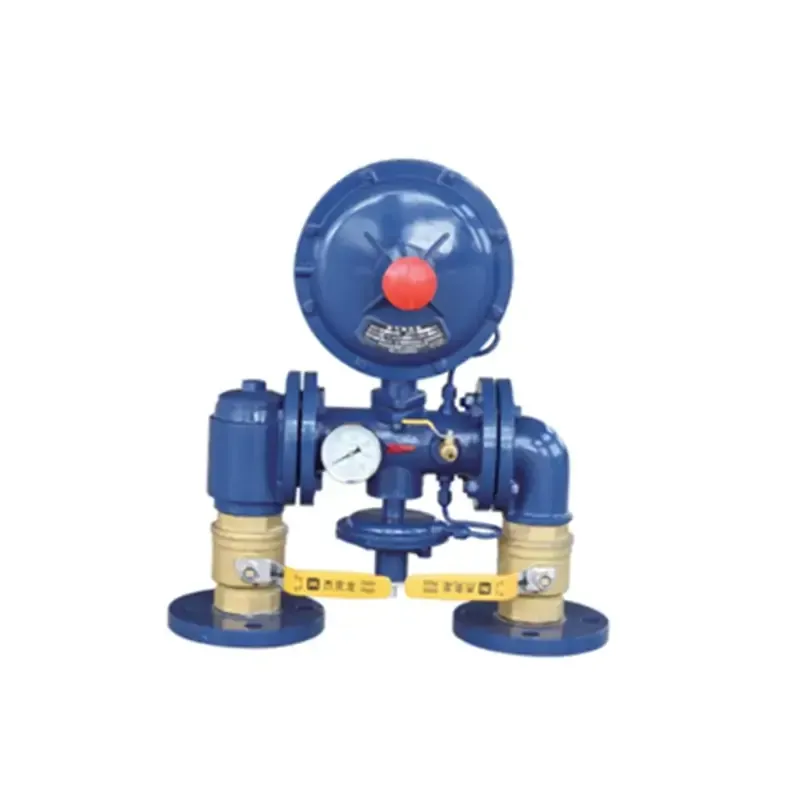
Dec . 11, 2024 12:32
Back to list
Electric Valve Control System for Enhanced Performance and Efficiency
The Role of Electric Valves in Modern Automation
Electric valves, also known as solenoid valves or electric actuated valves, play a pivotal role in modern automation systems across various industries. These devices, which control the flow of liquids and gases, are essential for enhancing efficiency, safety, and precision in numerous applications. This article explores the functionality, types, advantages, and applications of electric valves, highlighting their significance in today’s technological landscape.
Understanding Electric Valves
An electric valve is a type of valve that is operated using an electric actuator. The actuator can be either a solenoid or a motor, enabling it to open or close the valve automatically based on electrical signals. Electric valves are designed to manage the flow of substances in pipelines, allowing for precise control over various parameters, such as pressure, temperature, and flow rate.
Types of Electric Valves
Electric valves come in several types, each suited for specific applications. Some of the most common types include
1. Solenoid Valves They use an electromechanical solenoid to control the valve's opening and closing. Solenoid valves are widely used in applications that require fast operation, such as in irrigation systems or pneumatic systems.
2. Motorized Ball Valves These valves use an electric motor to operate a ball mechanism inside the valve. They are excellent for applications requiring tight sealing and are often found in heating and cooling systems.
3. Globe Valves Electric actuated globe valves offer better control over flow and are commonly used in applications that demand precise regulation.
4. Butterfly Valves Utilizing a disc to control flow, electric butterfly valves are ideal for applications with large pipelines where quick operation is necessary.
Advantages of Electric Valves
.
1. Precision Control They allow for exact regulation of flow and pressure, which is critical for processes that demand accuracy, such as chemical manufacturing.
صمام كهربائي

2. Automation Compatibility Electric valves can be easily integrated into automated systems, allowing for remote operation and monitoring. This capability enhances operational efficiency and reduces labor costs.
3. Safety Electric valves can be programmed to fail in a safe position during a power outage or malfunction, reducing the risk of leaks or accidents.
4. Durability Many electric valves are designed to withstand harsh environmental conditions, ensuring a longer lifespan and lower maintenance costs compared to mechanical valves.
Applications in Various Industries
Electric valves find applications across a wide array of industries
1. Water Treatment In municipal water systems, electric valves control the flow of water for treatment and distribution.
2. Manufacturing They are used in processes that require precise mixing or dosing of chemicals.
3. Food and Beverage Automation in food processing often relies on electric valves for regulating the flow of ingredients.
4. Energy Sector Electric valves are essential in the oil and gas industry for controlling the flow of crude oil and natural gas, ensuring safe and efficient operations.
5. HVAC Systems In heating, ventilation, and air conditioning systems, electric valves manage the flow of water and refrigerant.
Conclusion
Electric valves are integral to the advancement of automation technologies in various sectors. Their ability to provide precise control, enhance safety, and facilitate automation makes them invaluable in modern industrial applications. As technology continues to evolve, electric valves will likely play an even more prominent role in the future of automated systems, driving efficiency and innovation across the board.
Next:
Latest news
-
Safety Valve Spring-Loaded Design Overpressure ProtectionNewsJul.25,2025
-
Precision Voltage Regulator AC5 Accuracy Grade PerformanceNewsJul.25,2025
-
Natural Gas Pressure Regulating Skid Industrial Pipeline ApplicationsNewsJul.25,2025
-
Natural Gas Filter Stainless Steel Mesh Element DesignNewsJul.25,2025
-
Gas Pressure Regulator Valve Direct-Acting Spring-Loaded DesignNewsJul.25,2025
-
Decompression Equipment Multi-Stage Heat Exchange System DesignNewsJul.25,2025

